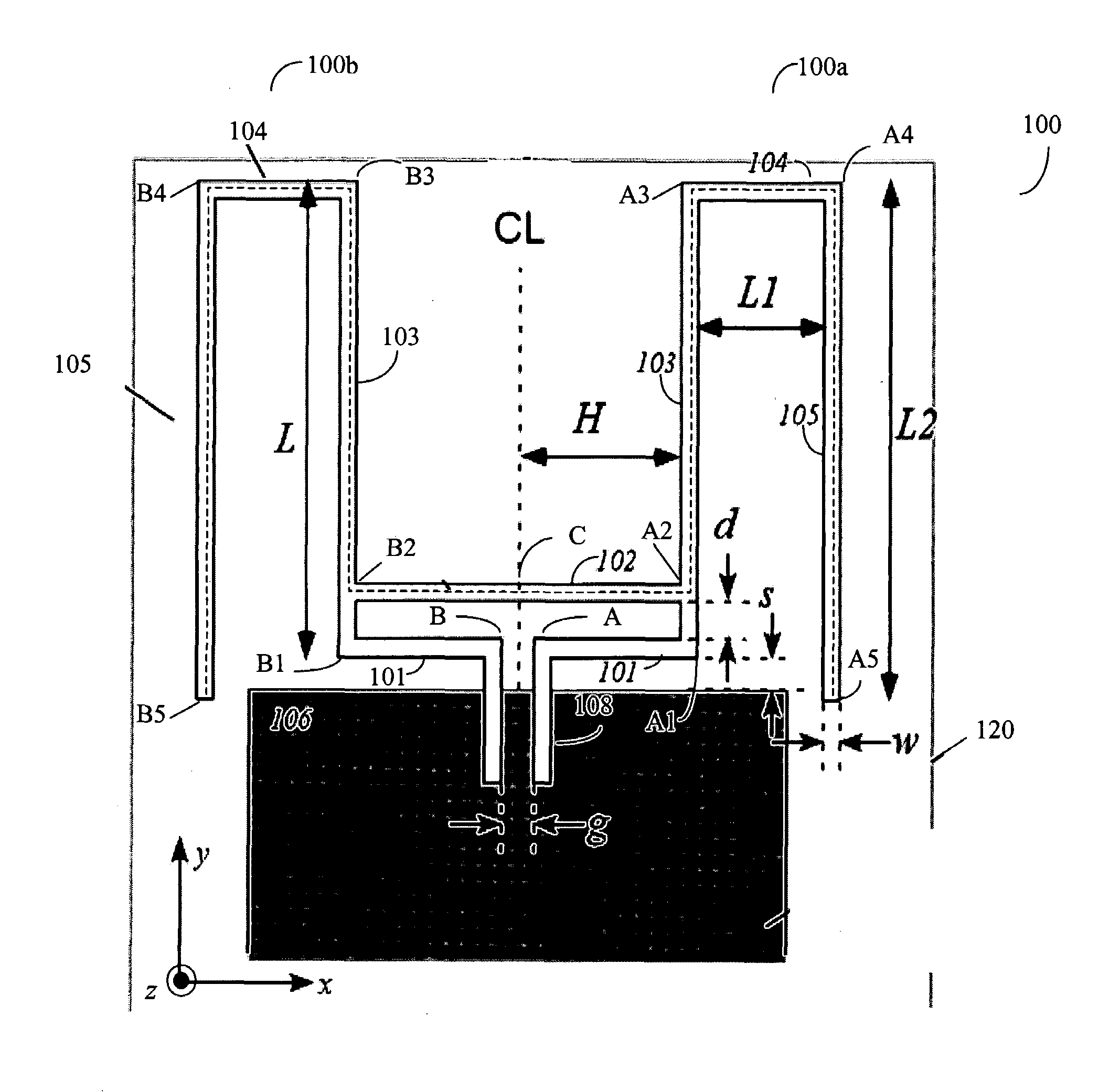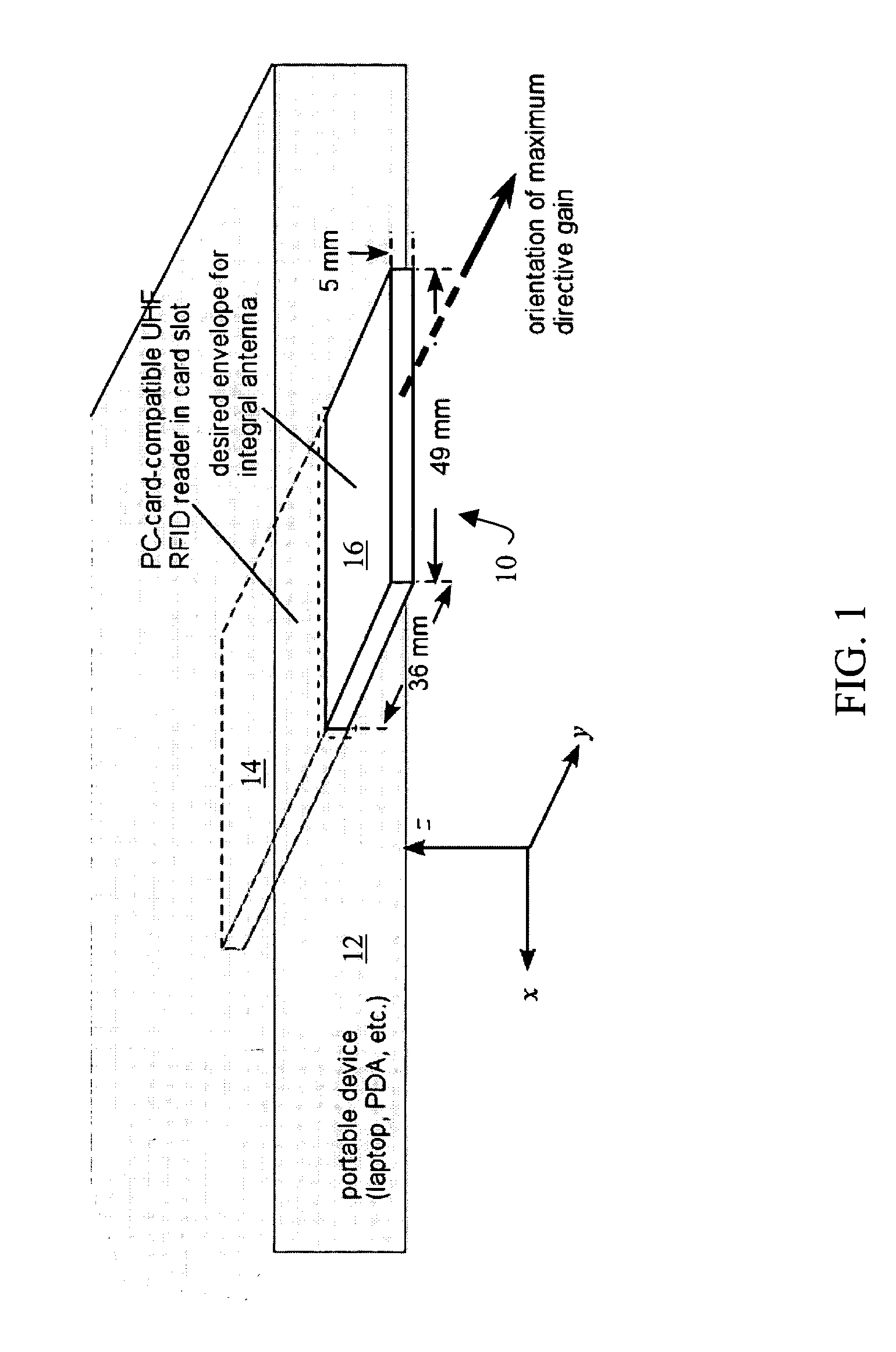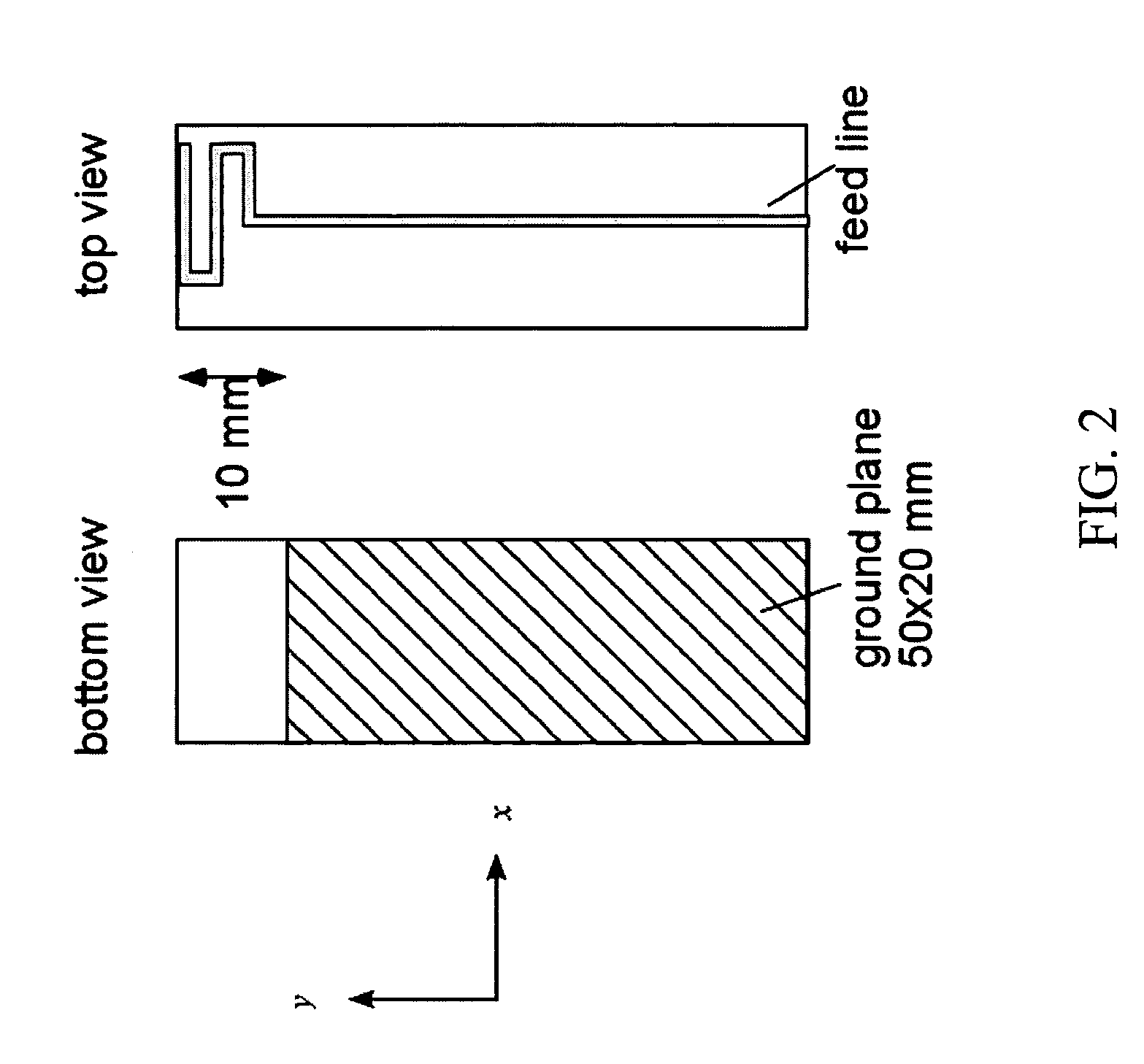Compact antenna with directed radiation pattern
a radiation pattern and antenna technology, applied in the field of communication, can solve the problems of almost entirely inductive coupling between the reader antenna and the tag antenna, and the pc card rfid reader
- Summary
- Abstract
- Description
- Claims
- Application Information
AI Technical Summary
Benefits of technology
Problems solved by technology
Method used
Image
Examples
example 1
[0070]FIG. 21 illustrates a circuit board layout of antenna 100 according to one embodiment of the present invention. Antenna 100 in FIG. 11 is constructed on a printed circuit board 120 using parameters given in Table 1. These parameters are chosen to provide good matching and radiation in the US industrial, scientific, and medical (ISM) band having a frequency range from 902 MHz to 928 MHz. FIG. 21 also shows an input line 112 for receiving a single-ended radio signal and a conventional wire-wound balun 113 employing a ferrite core and bifilar winding, which is employed to provide a transition between the single-ended input line 112 and antenna 100. Discrete matching components including a capacitor 114 inserted in input line 112, an inductor 115 coupled between input line 112 and ground plane 106, and a capacitor 116 coupled between terminals A and B of conductor lines 100a and 100b of antenna 100 are also provided to compensate for effects caused by imperfection of balun 113.
[00...
example 2
[0079]A test antenna was constructed to examine the effects of the dimensions and placement of a plastic enclosure (‘radome’). The dimensions of this antenna are shown in Table 2. FIG. 28 explains the nomenclature describing the radome configuration.
[0080]
TABLE 2ParameterValueUnitsSubstrateFR4(NA)Substrate thickness710micronsL31mmH11mmL19mmL232mmg3.6mmd2mms3.5mmw1.3mmBottom Cavity0.7mmHeightRadome3(NA)dielectric constant
[0081]The effects of the radome is examined by simulations using a variety of differing radome configurations. The simulation results for different cases of antenna radome configuration are summarized in Table 3.
[0082]
TABLE 3ResonantRe(Zin) atTopBottomTopSideFrequencyResonantCavity HeightThicknessThicknessThickness[MHz]FrequencyCases[mm][mm][mm][mm]Im(Zin = 0 Ω)[Ω]16.61.301.301.309486026.60.650.650.659746736.61.300.650.659616146.60.651.301.309626556.60.650.651.309656662.31.301.301.309435572.30.650.650.65972638No Radome1011 76
[0083]A regression fit to the simulations ...
PUM
 Login to View More
Login to View More Abstract
Description
Claims
Application Information
 Login to View More
Login to View More - R&D
- Intellectual Property
- Life Sciences
- Materials
- Tech Scout
- Unparalleled Data Quality
- Higher Quality Content
- 60% Fewer Hallucinations
Browse by: Latest US Patents, China's latest patents, Technical Efficacy Thesaurus, Application Domain, Technology Topic, Popular Technical Reports.
© 2025 PatSnap. All rights reserved.Legal|Privacy policy|Modern Slavery Act Transparency Statement|Sitemap|About US| Contact US: help@patsnap.com



